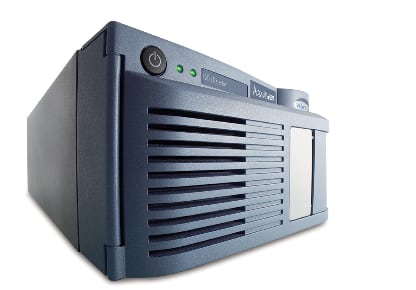Acquity QDa Detector is designed for analytical scientists who need mass spectral data without the complexity of a mass spectrometer.
The single quadrapole detector automates sample analysis and eliminates sample-specific adjustments for certainty in results and is the same size as a photodiode array (PDA) detector.
The machine complements optical detection by confirming the identity of compounds with mass spectral information.
It extends the limits of sample detection for a chromatographic separation by quantifying compounds having no ultraviolet response or that are present at levels not detectable and quantifiable by optical detection.
Beta testers
Waters claims it has “lowered the bar” in terms of activation energy to have access to the detector in the food lab, adding that the Acquity QDa Detector project began up to four years ago with focus groups including lab managers and scientists.
The firm said the beta-systems were given to evaluators to “touch it, turn it on and run samples on it” to see whether it met expectations.
Joe Romano, senior manager for food and environmental business operations at Waters Corporation, said he had seen budgets, resources and lab spaces tighten with a pressure to get results and make decisions faster.
"The pressure to get results and make decisions faster can lead to an increase in the risk of doubt in the results, it is a means to get a decision from the analysis of a food to release the product to people who are waiting in the marketplace," he told FoodQualityNews.com.
"If a lab gets a result that is questionable due to an unknown peak or a missing compound, they may have to outsource the sample to a central or contract lab. This is not a straightforward process, it increases the delay and repeat analyses drives up cost."
The detector is aimed at food laboratories doing method development, sample profiling, quality assurance, and purification.

Romano said the detector is plug and play with users able to keep existing workflow processes.
“In talking to industry it can be used for artificial sweeteners in foods, sugars which typically use HPLC with refractive index detection and polyphenols in juices so you can add mass spectrometry and not miss a thing.
"It is also to introduce mass spectrometry for developing countries for things such as analysis of patulin in apple juice - it allows them to combine multiple methods into one."
Lab demands
He added that lab objectives include meeting deadlines, with less people and resources and reducing costs to improve efficiency.
“We talk to them about workflows and challenges and objectives to obtain how they are doing now and the goal to get the result and meet the deadline to get products to market faster.
“Mass spectrometry is the gold standard in food safety analysis, the detector allows chromatography that they can use without the skillset of a mass spectrometry person.”
Romano added that the cost of the solution is less than the cost of the problem.
“The advantage of the mass detector is the selectivity and specificity without the mass spectrometry person and no changes in standards operating practices in which the lab operates.
“It meets the concerns of if ingredients are in there at the proper amounts, are there things that are there that aren’t supposed to be there and find them before the recall…brand protection is vital in the food industry.
“Functional foods is a growing market, it is a small margin industry but products fortified with vitamins. We see that vitamin analysis is a frequently downloaded app from our website.”
The Acquity QDa Detector is compatible with their Acquity UltraPerformance LC (UPLC), Acquity UltraPerformance Convergence Chromatography (UPC2), Alliance high performance liquid chromatography (HPLC) and supercritical fluid chromatography (SFC) and LC-based purification systems.
